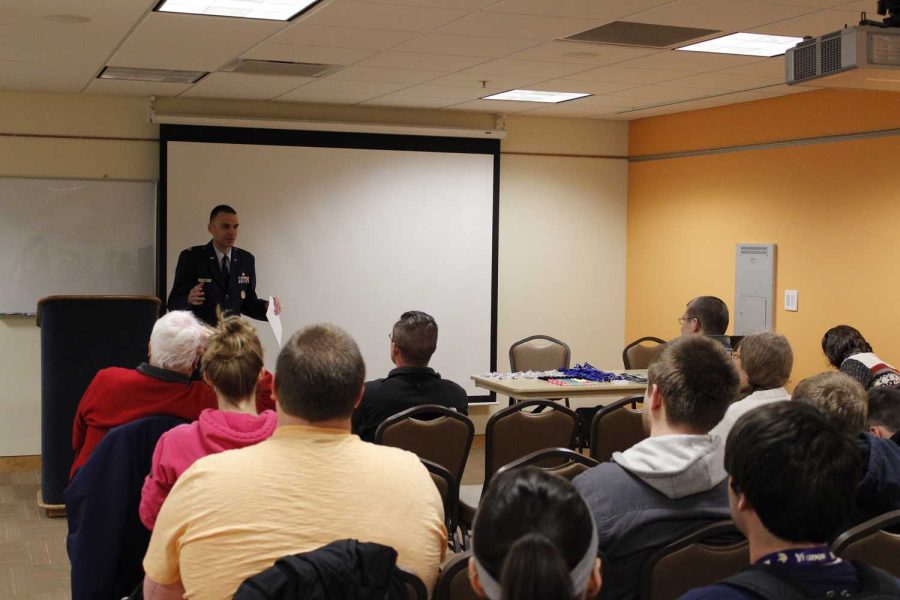Lt. Col. Jeremy Weber addressed the controversy of sexual assault in the military on Tuesday, hoping to educate students more on the issue.
“Some people think the military is doing something right,” Weber said. “Some people think the military is doing something wrong — we need to have a conversation about that.”
Roughly 50 people attended Weber’s speech in the Union as he compared the military justice system to the civilian criminal justice system.
“[Sexual assault] is not a new issue, but what does the data mean? Is it a military [problem] or a broader societal problem? How many sexual assaults are too many?” Weber said.
In 2013, 26,000 people were estimated as being a victim of sexual assault in the military, according to the Center for American Progress. Of that number, 14,000 were male.
This is a 35 percent increase from an estimated 19,000 victims in 2011, according to CAP’s website.
Besides the increasing statistics, a major concern for audience members was if protection programs are available for victims.
Weber explained that a victim who experiences sexual assault in their unit, especially from someone else in their unit, has a different effect than one in everyday society, but options are still available to them.
“Any person who makes a report has the right to request a transfer, which must be acted upon within three days,” Weber said. “Also, if a victim does not report the assault to the commander, their identity can be protected.”
Leila Kawar, assistant professor in the department of political science, played a major role in Weber’s visit to the University.
She also encouraged her students to attend, and to notice the correlations between her class lecture and Weber’s personal experience.
“We had people from the women’s center, cadet court and law programs,” Kawar said. “That’s something that usually doesn’t happen.”
During the event, Weber allowed the audience to ask questions. Many of them consisted of changes in the military, myths and sexual assaults related to women in combat.
Most of the changes Weber discussed were those before World War One and how the military justice system has changed since then.
“I think he covered the ground with these issues [and] them adapting to changes; the dynamics of the organization,” Kawar said.
Weber addressed every issue the audience presented, and does not personally think women in combat will increase the sexual assault rates.
Grad student Tess Newlove appreciated Weber’s insight.
“It was very informative,” Newlove said. “I was surprised to learn about the recent changes in the military in response to sexual assault.”
Freshman Samantha Christ also enjoyed the event.
“Some of the information I didn’t know before, I do now,” she said. “It was really good insight.”
Overall, Newlove is glad she was able to hear Weber speak.
“It was interesting and a good overview of how the military justice system works compared to the overall justice system,” Newlove said.
Although the turnout of the event was a success, Weber is still concerned about the future of sexual assault in the military, especially since the numbers continue to rise yearly.
“If military members cannot work as a team and without sexual assault being a worry, it endangers the missions — and that’s what scares me.”














